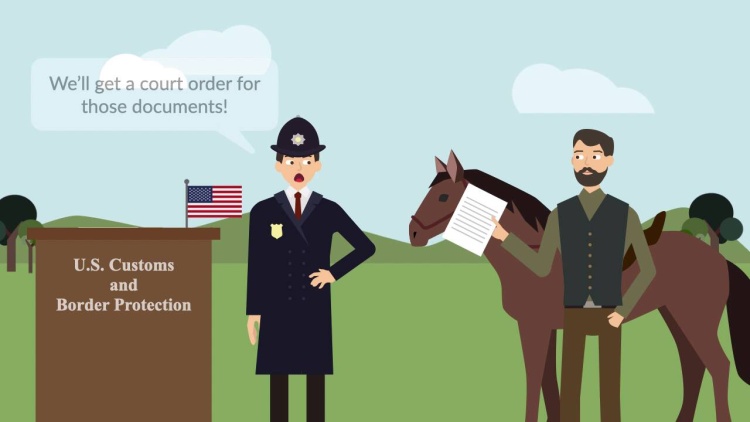Boyd v. United States
United States Supreme Court
116 U.S. 616, 6 S. Ct. 524, 29 L. Ed. 746 (1886)

- Written by Sean Carroll, JD
Facts
An 1874 statute permitted the government to require that a person produce books and papers when asked. The statute did not permit search and seizure of the effects, per se, but rather allowed the government to present a motion to the trial court describing a document and what the prosecution thought that document might contain. The person was not required to turn over the document, but if he did not, the allegations in the prosecution’s motion would be “taken as confessed.” Customs officials seized 35 cases of glass that were imported by Boyd and Sons (Boyd) (defendant). The officials believed that Boyd was attempting to avoid paying customs for the cargo. The government used the 1874 statute to request that Boyd turn over the invoices for these cases. Boyd turned over the invoices but objected to their introduction at trial on the ground that the statute violated the Fourth Amendment. The jury found for the government and ordered that the cases of glass be forfeited. Boyd appealed.
Rule of Law
Issue
Holding and Reasoning (Bradley, J.)
Concurrence (Miller, J.)
What to do next…
Here's why 907,000 law students have relied on our case briefs:
- Written by law professors and practitioners, not other law students. 47,100 briefs, keyed to 996 casebooks. Top-notch customer support.
- The right amount of information, includes the facts, issues, rule of law, holding and reasoning, and any concurrences and dissents.
- Access in your classes, works on your mobile and tablet. Massive library of related video lessons and high quality multiple-choice questions.
- Easy to use, uniform format for every case brief. Written in plain English, not in legalese. Our briefs summarize and simplify; they don’t just repeat the court’s language.





